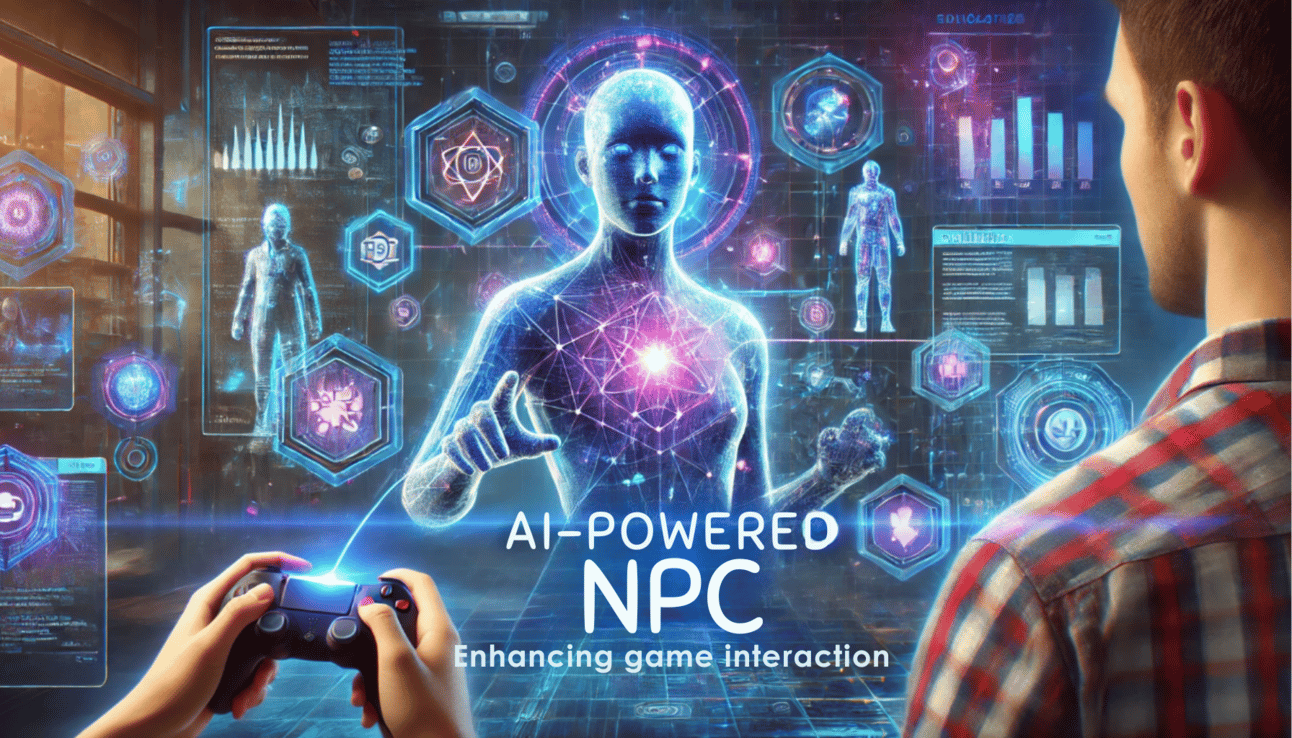
Image Source: ChatGPT-4o
AI-Powered NPCs: Revolutionizing Video Game Interaction
For decades, video games have relied on scripted interactions with non-player characters (NPCs) to guide players through their adventures. However, with advancements in artificial intelligence, game studios are exploring generative AI to create more dynamic and interactive game environments. This technology is helping to build more immersive worlds, assist game writers, and provide players with unique, unscripted experiences.
AI-Fueled NPCs: Enhancing Gameplay and Interaction
In the multiplayer game “Retail Mage,” players take on the role of a wizard running a magical furniture store. They can interact with NPC customers in a variety of ways, such as picking up and examining items, deconstructing chairs for parts, or even tearing a page from a book to leave a note. These interactions are driven by AI rather than pre-written scripts, allowing for more spontaneous and creative gameplay.
“We believe generative AI can unlock a new kind of gameplay where the world is more responsive and more able to meet players at their creativity and the things that they come up with and the stories they want to tell inside a fantasy setting that we create for them,” said Michael Yichao, co-founder of Jam & Tea Studios, creators of “Retail Mage.” The AI technology enables NPCs to respond realistically to players' actions, creating a more vibrant and reactive game environment.
Generative AI Expands Narrative Possibilities
Traditional NPC interactions often involve a limited set of dialogue options that lead to predictable outcomes. Game developers are now using generative AI to create richer, more nuanced relationships between players and the characters they meet. This technology offers the potential for players to go off-script and shape their own stories, making the game world feel more alive.
Companies like Nvidia and Inworld AI are developing platforms for generative NPC behavior, while Ubisoft's Ghostwriter tool helps game writers craft NPC dialogue. According to a report from the Game Developers Conference, nearly half of developers surveyed are using generative AI tools, with indie studios leading the way.
Ethical Considerations in AI-Driven Game Design
Despite the excitement around AI in gaming, ethical concerns remain. Roughly 80% of developers surveyed expressed worries about the responsible use of AI. Carl Kwoh, CEO of Jam & Tea Studios, emphasized that AI should complement human creativity, not replace it. “That’s always been the goal: How can we use this tool to create an experience that makes players more connected to each other? They can tell stories that they couldn’t tell before.” he said.
Real-Time Reactions and Dynamic Worlds
Using AI, NPCs in “Retail Mage” can do more than just talk — they can perform actions like shopping or responding to other NPCs, adding layers of interactivity that go beyond traditional gameplay. Yichao shared that players have even turned the shopping experience into a dating simulation, with NPCs reacting dynamically to players’ flirtations.
In the game “Mecha BREAK,” players can use Nvidia’s AI to interact with NPC mechanics, like asking them to customize a mech's color, turning what would normally be a menu-driven process into an interactive experience. “Now it could be a much more interactive, much quicker experience,” explained Ike Nnole, senior product marketing manager at Nvidia.
AI as a Game Design Partner
Artificial Agency, a Canadian AI company, has developed an engine that integrates AI into all aspects of gameplay, from NPCs to companions and tutorial guides. It’s like having "a game designer on the shoulder of everyone as they're playing the game,” said co-founder Alex Kearney. The company’s AI can be used at any stage of development, helping designers create more engaging and reactive game environments.
CEO Brian Tanner noted that their AI system allows designers to focus on characters' motivations and backstories, enabling NPCs to improvise based on real-time events. “These characters can can improvise on the spot depending on what’s actually happening in the game,” he said.
The Future of AI in Gaming
As AI technology continues to evolve, it promises to transform how players interact with games. With more realistic, responsive worlds and NPCs that can adapt to players’ actions, the line between scripted gameplay and true improvisation is beginning to blur. This new level of immersion could make virtual worlds feel more authentic and engaging than ever before.
